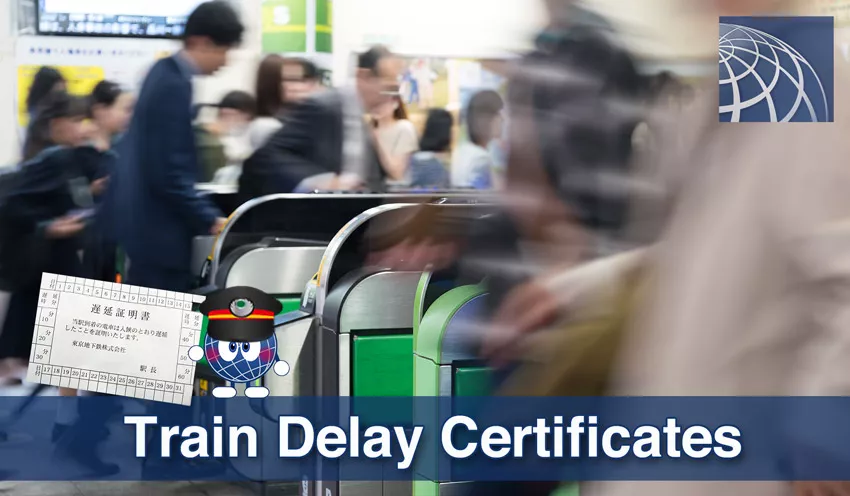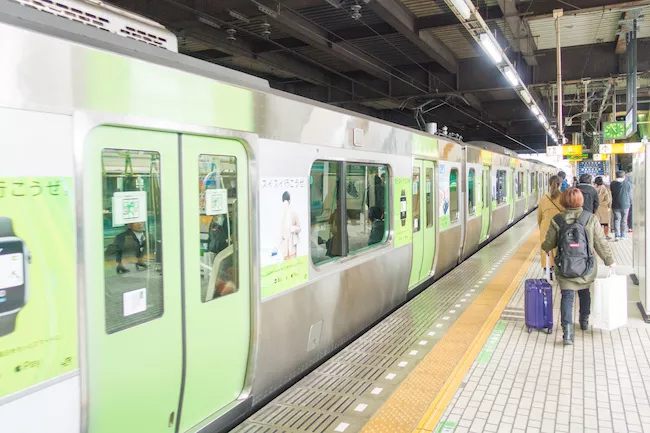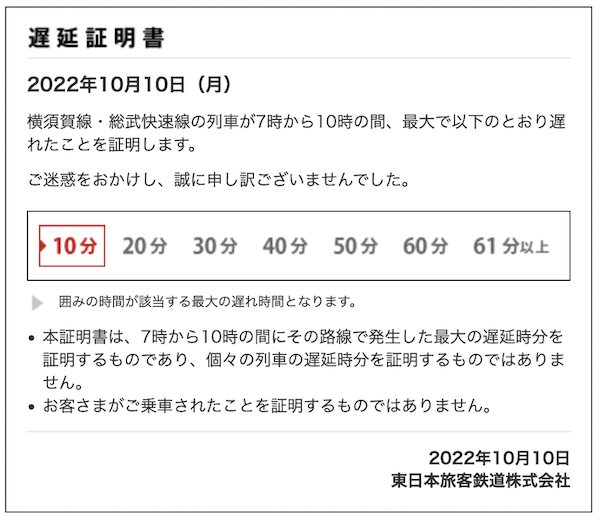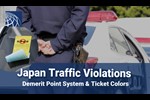Train running late? Get a Train Delay Certificate(Chien Shoumei)!

In Japan–historically–companies, governments, and schools have been very strict about employees, staff, and students arriving on time for work or school. When so much of the population—in large cities such as Tokyo—relies on public transportation, especially the railway system, any delay can impact a large number of individuals.
To help their passengers avoid trouble with superiors at work, Japanese railways have long instituted a procedure to prove that a passenger's tardiness was through no fault of his or her own. When a train is delayed in Japan, the staff at each station where a delayed train stops will distribute a 電車遅延証明書 (densha chien shoumeisho) or train delay certificate which can be given to a boss, a teacher, school administrator, or other person in charge as an acceptable reason for being late.
> Tokyo Subway Ticket Option: Suica or PASMO?
These certificates might look something like the one pictured above. The certificate indicates the date of the delay along the bottom and the amount of the delay on the right or left columns in 5 minute increments. Certificates are generally issued for any delay of 5 minutes or more.
Train delays in Tokyo are a common occurrence and usually happen during the morning rush due to many passengers taking too much time to either get on the train (often having to squeeze in) or taking too much time to exit the train (often having to push their way out).
How to obtain a Train Delay Certificate
If your train is late, a station attendant will often be standing on the platform or else at the ticket gate handing out the certificates to exiting passengers. If not, go to the counter by the ticket gate and request one by say the following:
Chien shoumeishou o onegai shimasu.
(Could I please have a train delay certificate?)
Punctuality of Japan's Railways

Japan's train system is well known for its punctuality. The train schedules are posted down to the minute and you can time your schedule by them, confident that they will be arriving at the exact minute that the schedule promises. Even a few minute delay (even 2-3 minutes) will have the train staff sincerely apologizing to passengers for the inconvenience.
Train Status information for JR will report delays in the excess of 30 minutes. Still, we live in an imperfect world, and despite all human effort, even in Tokyo, the trains are occasionally delayed, by severe weather, accidents, other unforeseen events.
Recent Developments
With the advent of the internet and modern smartphones, Japan's railway companies have implemented new online Train Delay Certificates that can be accessed any number of ways, including via smartphone or computer. If you are unable to acquire a certificate at the station where you disembark from the train, you can always pull it up on your phone or computer when you arrive at your destination.
Below are the links to the online pages where you can locate the certificates for several major railways in Tokyo. Most of the websites are only in Japanese.
JR East
Keio Railways
Odakyu Railways
Seibu Railways
Tobu Railways
Toei Subway
Tokyo Metro
Tokyu Railways
These electronic delay certificates can look like the below and can be printed out and serve as a substitute as needed.

Another thing to note is that the electronic certificates are stored on each company's site for some period of time, typically at least one week, so if your boss asks you why you were late 3 days ago, you can give definitive proof.

- Rental Apartments & Houses in Tokyo
- Listings of popular and luxurious rental apartments, condominiums, and houses designed with expats in mind.

- Apartments & Houses for Sale in Tokyo
- Listings of apartments, condominiums, and houses available for purchase in Tokyo.



















